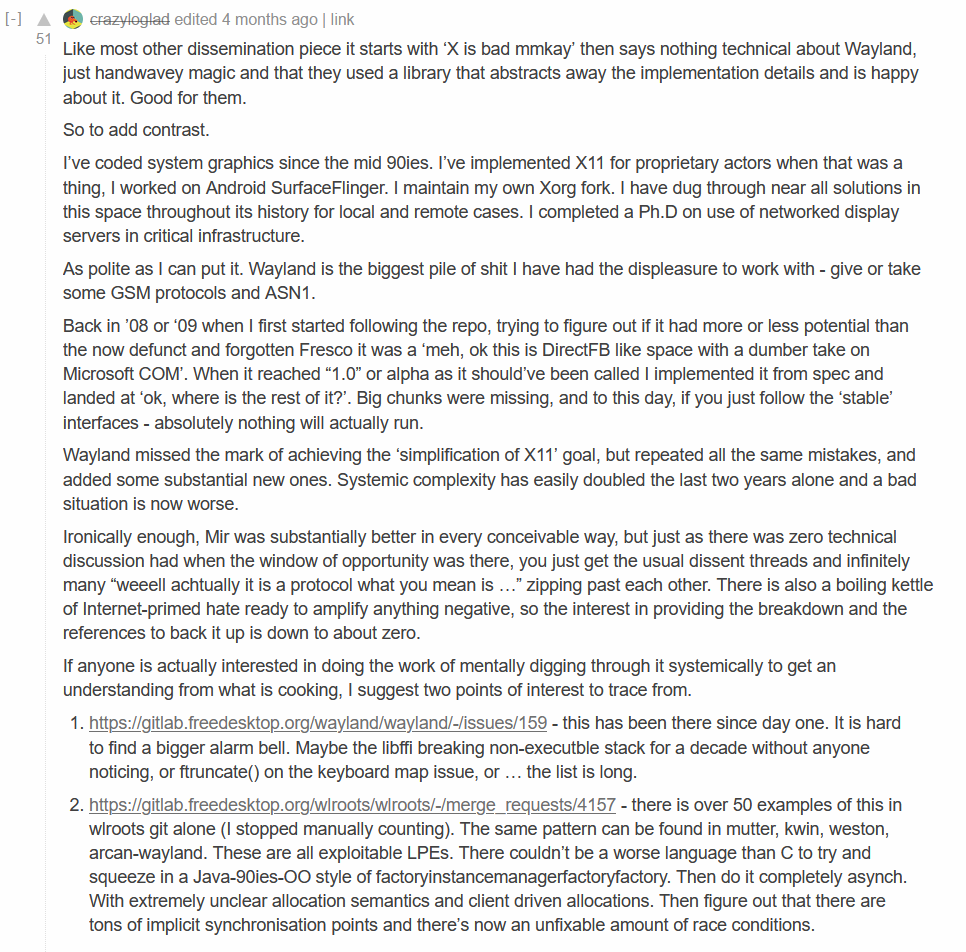this post was submitted on 02 Jan 2024
3 points (100.0% liked)
Linux
58970 readers
1349 users here now
From Wikipedia, the free encyclopedia
Linux is a family of open source Unix-like operating systems based on the Linux kernel, an operating system kernel first released on September 17, 1991 by Linus Torvalds. Linux is typically packaged in a Linux distribution (or distro for short).
Distributions include the Linux kernel and supporting system software and libraries, many of which are provided by the GNU Project. Many Linux distributions use the word "Linux" in their name, but the Free Software Foundation uses the name GNU/Linux to emphasize the importance of GNU software, causing some controversy.
Rules
- Posts must be relevant to operating systems running the Linux kernel. GNU/Linux or otherwise.
- No misinformation
- No NSFW content
- No hate speech, bigotry, etc
Related Communities
Community icon by Alpár-Etele Méder, licensed under CC BY 3.0
founded 6 years ago
MODERATORS
you are viewing a single comment's thread
view the rest of the comments
view the rest of the comments

It already has these. They're called Linux Distros. They decide the combination of packages that make up the end to end experience. And they're all aimed at different types of user.
Why are none explicitly aimed at the average Windows user? I suspect there's one major reason. The average Windows user is incapable of installing an operating system at all, and new PCs invariably come with Windows pre-installed. This isn't a sleight on them by the way, it's just that most computer users don't want or need to know how anything works. They just want to turn it on, and post some crap on Twitter/X then watch cat videos. They don't have an interest in learning how to install another operating system.
Also, a distro aimed at an average Windows user would need to be locked down hard. No choice of window manager, no choice of X11/Wayland. No ability to install applications not in the distro's carefully curated repository, plus MAYBE independently installed flatpak/other pre-packaged things. The risk of allowing otherwise creates a real risk of the system breaking on the next big upgrade. I don't think most existing Linux users would want to use such a limiting distro.
Unless Microsoft really cross a line to the extent that normal users actually don't want anything to do with windows, I cannot imagine things changing too much.